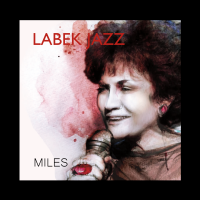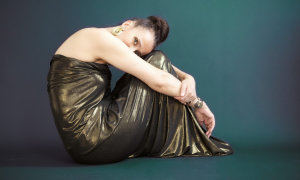Home » Jazz Articles » Interview » Richard Brent Turner on Islam, Jazz and Black Liberation
Richard Brent Turner on Islam, Jazz and Black Liberation
You had great jazz music in Boston, right? You had Paul's Mall and—
RT: Yeah, oh man. I was at Paul's Mall, Jazz Workshop, all the time. That was great because the musicians at that time were not huge superstars so you could talk to them. I met Arthur Watts. He came over to my table because I had two beautiful black women with me [laughter]. I was dating one of them and she brought her sister along, so I think that's why he did that [laughter]. He came over to me. He said, "Man, you look like my brother!" [laughter]. We had some really good jazz in Boston in the 1970s into the 1980s. I saw Pharoah Sanders perform live at the Tuft University gym. I'll never forget that as a college student. It just was a mind-blowing experience. But New York is different. So much of the music developed in New York.
AAJ: What's next? You have another book in the works? Do you have a project?
RT: I'm looking at a couple of book projects. I'm working on a book project now on hip hop where I'm exploring some similar themes in hip hop. You know Islamic themes, racial justice themes in hip hop. Hip hop is fascinating.
Tags
Interview
John Coltrane
Lawrence Peryer
United States
duke ellington
Billie Holiday
Charlie Parker
Dizzy Gillespie
lee morgan
Art Blakey
Yusef Lateef
New York
Omaha
Boston
London
Chicago
Count Basie
Los Angeles
Alice Coltrane
Ahmed Abdul-Malik
Max Roach
McCoy Tyner
Olatunji
Seattle
Village Vanguard
Eric Dolphy
Paul's Mall
Jazz Workshop
Grover Washington, Jr
Pharoah Sanders
PREVIOUS / NEXT
Support All About Jazz
 All About Jazz has been a pillar of jazz since 1995, championing it as an art form and, more importantly, supporting the musicians who make it. Our enduring commitment has made "AAJ" one of the most culturally important websites of its kind, read by hundreds of thousands of fans, musicians and industry figures every month.
All About Jazz has been a pillar of jazz since 1995, championing it as an art form and, more importantly, supporting the musicians who make it. Our enduring commitment has made "AAJ" one of the most culturally important websites of its kind, read by hundreds of thousands of fans, musicians and industry figures every month.






















